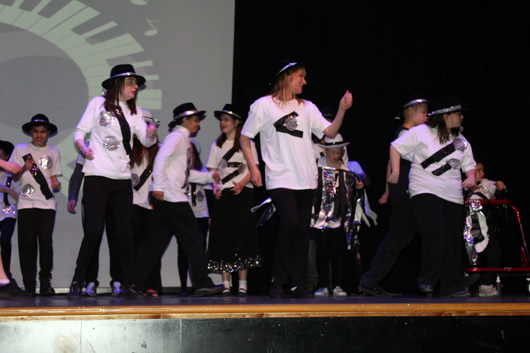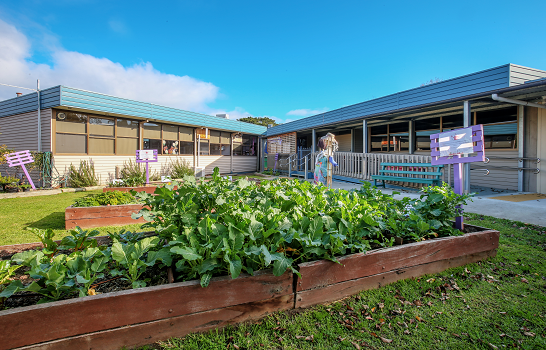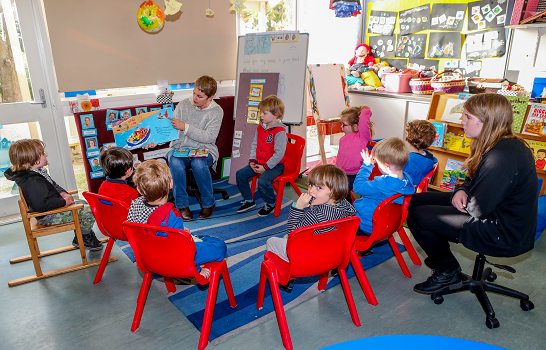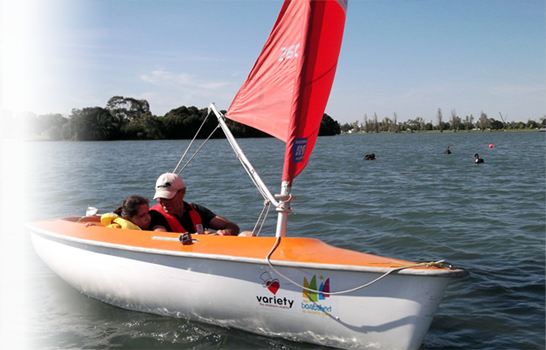Music Program
Music is a therapeutic tool, that can make the difference between isolation and interaction. Music is used to establish a trusting relationship, then works to improve the students physical and mental functioning through carefully structured activities. Examples can include singing, listening, playing instruments, moving to music, and imagery exercises. Our music program is based on the knowledge of the music's affect on behavior, the student's strengths and weaknesses, and therapeutic goals.
Our program works toward specific therapeutic goals and objectives.
- Goal areas include:
- Communication
- Academic skills
- Motor co-ordination
- Emotional and Social skills

It is important to be aware that while students may develop their musical skills during sessions, these skills are not the primary concern of our school. Rather it is the effect such musical development might have on a students physical, physiological, and socio-emotional functioning.
Our music programs offer students a variety of opportunities to perform to an audience. We participate in the annual Special Developmental Schools music festival, and engage in a variety of performances giving students an opportunity to share their love of music with their family and friends.
There are many ways in which we adapt our music and our music sessions to give our students the best learning advantage. Examples are playing games, performing, improvisation, relaxation and counting. Music also cultivates and improves verbal development. Through the dynamics, pitch and rhythm, we enhance our conceptual understanding, stimulating memory and cognitive abilities. This is all centered on having fun while learning through music.




